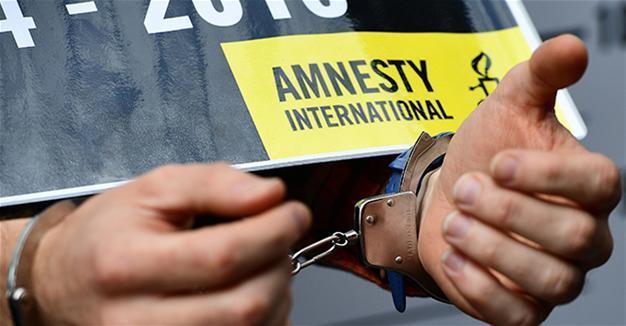Turkey’s detention of human rights activists aims to create intimidation, Amnesty International says
ISTANBUL

AFP photo
The detention of 10 human rights defenders on July 5 in Turkey is a general message of intimidation given by the government to human rights organizations, Amnesty International’s Turkey researcher Andrew Gardner told Deutsche Welle (DW) Turkish in an interview on July 13.
Gardner said the case constituted a strategic importance as the detained individuals were members of organizations that prepared reports on arbitrary arrests, incidents of torture, and violations of human rights.
Eight Turkish human rights defenders, including İdil Eser, the director of Amnesty International Turkey, as well as two foreign trainers – a German and a Swedish national – were detained on July 5 at a digital security and information management workshop on Büyükada, an island south of Istanbul.
On July 11, Amnesty International said Turkey had extended for up to a week the detention of the 10 people. The police detention will now last until July 19, Gardner had told AFP.
The activists are accused of “membership of an armed terrorist organization,” although unclear which organization, an allegation that Amnesty previously said was “unfounded.”
Meanwhile, Hakan Ataman, the co-coordinator of Citizens’ Assembly, a non-governmental organization based in Istanbul, said the detentions were a “conscious act of defamation.”
It is an act to “smear, defame, and disgrace human rights defenders in Turkey and the non-governmental organizations working for human rights deliberately and purposely,” Ataman told DW Turkish. The activists are trying to be shown as criminals due to the “defaming campaign,” according to Ataman.
Ataman said the organization had been contacting its two detained members, Nalan Erkem and Özlem Dalkıran, through their lawyers and providing them with their basic needs such as cleaning materials, towels, and medicine.
